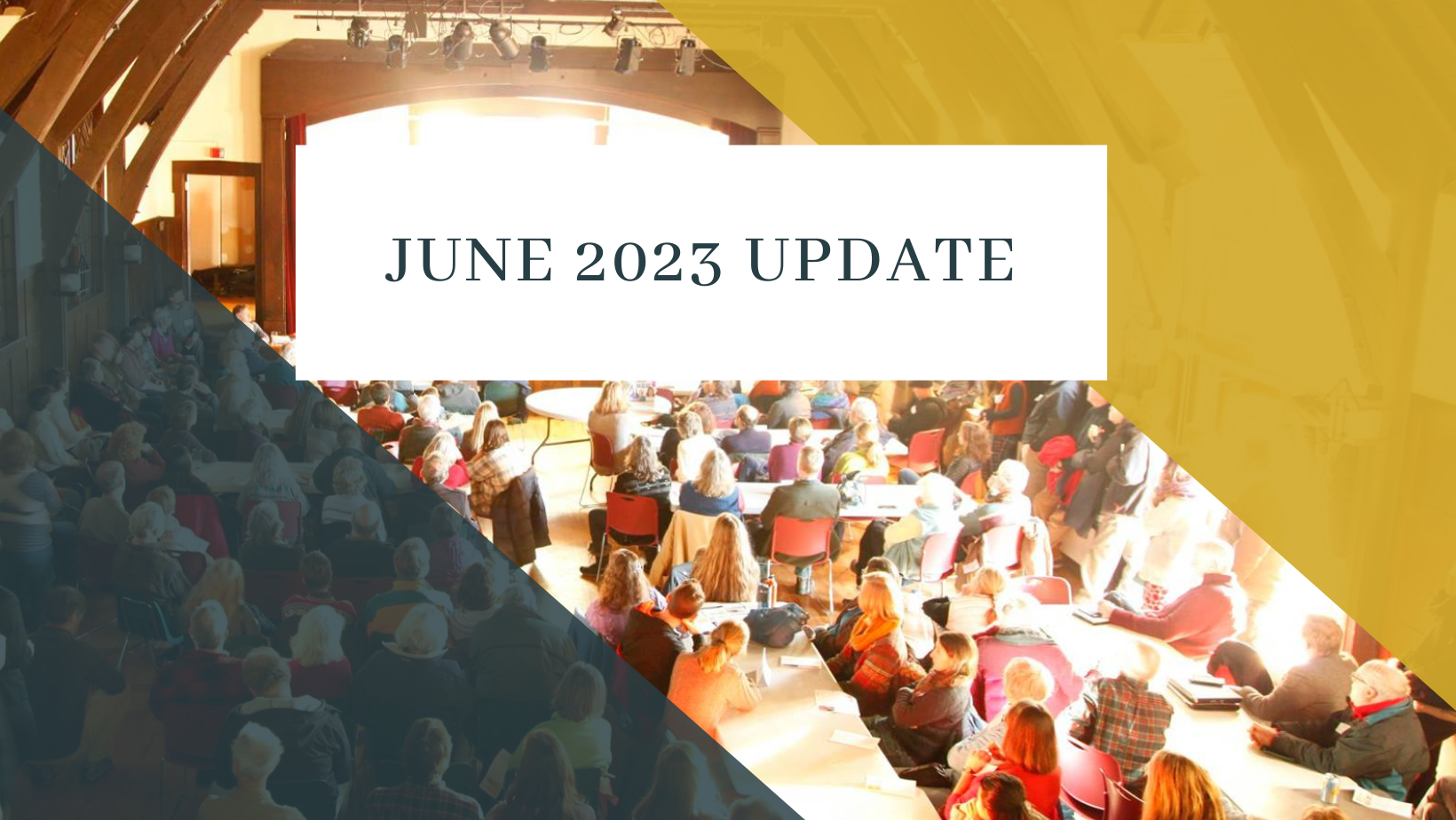As we approach the mid-point of 2023, we wanted to share a brief update on some of ACTT’s recent work. Our work continues to be a steady balance of local project work on MDI building models of community-driven climate solutions, statewide work supporting community-driven climate action throughout Maine, and policy work focused on removing the barriers to and establishing better support for community-driven solutions.
Local Project Work
Cooperative Solar: The Co-op Solar Steering Committee has been hard at work, in collaboration with ACTT, developing bylaws, identifying financial structures, and locating initial potential sites. This project removes financial barriers to the many benefits of solar ownership and is focused on expanding ownership access to low-and-moderate income homeowners and renters while building local energy literacy and resilience and prioritizing responsible siting.
Comprehensive Building Solutions Program: Over 150 of you joined us for the launch of this program in mid-Jaunary at the MDI High School. The program provides support for a comprehensive approach to building efficiency, electrification, and switching to renewable energy. With the extensive incentives and rebates currently available, there has never been a better time to improve your home’s energy situation.
Municipal Solar: ACTT is currently working most extensively with the town of Mount Desert on pre-development for a municipally-owned array. This work is funded by a grant from the state’s Community Resilience Partnership program, which ACTT helped the town obtain.
Tremont Community Resilience Planning Process: ACTT has been supporting the town of Tremont in the development of a Community Resilience Plan. This work has been funded by a grant through the Community Resilience Partnership, which ACTT supported Tremont in obtaining. Work to-date has focused on gathering input from the community through listening sessions and various other pathways, meeting with town committees, and developing the plan outline. ACTT is also working to connect the town with the Gulf of Maine Research Institute for a vulnerability assessment, also funded through the Community Resilience Partnership.
Nonprofit Solar: ACTT is supporting numerous nonprofits on MDI in plans for owned solar energy. The Inflation Reduction Act established a direct-pay incentive available to support nonprofits in developing solar, making this an ideal time for nonprofits to consider solar ownership.
Energy Transitions Initiative Partnership Program through the Department of Energy: ACTT was selected as one of 12 coastal and island communities to receive technical assistance in the second cohort of this program. Scoping has just completed with the national lab team and data collection is about to begin. The technical assistance is focused on plans for renewably powered resilience hubs, or microgrids, that would significantly increase MDI’s resilience in the face of substantial power outages.
Climate Ambassadors Program: The second locally-based, in-person session of this program ran during April and May. Watch for another in-person session this fall!
Additional support for MDI towns: ACTT recently supported Southwest Harbor in joining the Community Resilience Partnership and is supporting Bar Harbor, Mount Desert, and Tremont in various grant-related activities funded through the same program.
Statewide Work
Local Leads the Way: monthly meetings supporting community-driven climate action groups throughout the state, community-driven climate action toolkit development, planning for a statewide conference in October 2023
Exploring a Local Energy Action Network for Maine
Climate Chats
Online Climate Ambassadors Program
Conference participation: ACTT has participated in four conferences already this year, each time focused on sharing what we have learned through our work to help move community-driven climate solutions forward in Maine.
EV Charging Corridor: Work continues on both the Eastern and Northern Maine and the Hancock County and Greater Blue Hill EV Charging Programs. We are in the final stretch of installations for both programs. If you are a municipality, nonprofit, or business in these regions and are interested in receiving a grant towards installation of a Level Two EV Charger, please read more on our website to see if the program might be a good fit for you.
Statewide Energy Literacy, Policy, & Regulatory Work
Educational programs to help all Maine ratepayers understand both the current challenges to interconnection of solar, the relationship between solar and electrical bills, and net energy billing. The focus of these programs has been the empowerment of ratepayers with knowledge and a pathway to advocate for the types of changes that will benefit all ratepayers while increasing Maine’s energy resilience.
Development of a statewide conference on interconnection, now scheduled for September 2023.
Participation in the integrated grid planning process underway through the Maine Public Utilities Commission (MPUC).
Education and support for communities to participate in the MPUC’s Chapter 324 proposed changes to the interconnection process in Maine.
Testimony related to significant bills.
Continued collaboration with stakeholders throughout the state to chart best pathway forward in support of community-driven energy solutions

